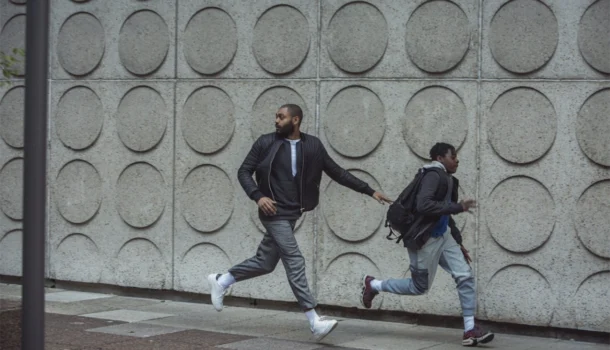The sense of belonging, that human instinct to take root in some corner of the world, requires more than emotional bonds; it demands a concrete space, a home that transcends the idea of mere shelter. Yet this elemental ambition increasingly clashes with the brutal rise in the cost of existence. Earth, vast as it may be, seems to grow ever smaller for those whose names are absent from the official ledgers of economic power. For the invisible, the right to exist with dignity is constantly renegotiated, almost always to their disadvantage.
It is within this context that Daniel Kaluuya, alongside Kibwe Tavares, constructs the oppressive architecture of “The Kitchen,” a cinematic endeavor that confronts the viewer with realities far beyond mere entertainment. The fictional housing project, which gives the film its name, serves as a brutal metaphor for a society that pushes its outcasts to the fringes of acceptability, confining them to inhospitable, suffocating cubicles. The contrast between the residents’ destitution and the arrogant splendor of the metropolis that ignores them could not be more cruel — a perverse reflection of the disparity that permeates so many real-world capitals.
Amid the dark alleys of this urban microcosm, Kaluuya and Tavares build a latent tension that erupts when the system, secure in its impunity, is finally challenged. The residents’ uprising is not just any rebellion, but a kind of ethical cataclysm, brought to life on screen without resorting to empty spectacle. On the contrary, the narrative chooses the discomfort of recognition: here lie the seeds of a collapse that, though crafted in fiction, resonates with unsettling plausibility.
In this claustrophobic setting, Izi, portrayed with depth by Kano, embodies the silent struggle for survival and for a shred of dignity. His morning ritual, marked by automatic gestures and small indulgences, reveals the normalization of the absurd: the ultimate luxury is a hot shower amid scarcity. The neighbors’ impatience, flashing alert lights, constant surveillance — all compose an atmosphere of unrelenting control, even in moments of intimacy. Communication from the housing developer, transmitted through an intrusive mirror, reinforces the omnipresence of a system that charges before even allowing the dream.
The narrative takes on more complex contours with the introduction of Benji, played by Jedaiah Bannerman, who disrupts the apparent stagnation of Izi’s life. The bond between them is fragile, tense, tainted by memories and absences. Their growing closeness does not soften the harshness of the environment; rather, it intensifies the friction, exposing wounds that find no healing. The skating rink scene, masterfully lit by Wyatt Garfield, is not mere visual relief but a harbinger of inevitable confrontations.
As the story progresses, every detail — from the oppressive aesthetics to the sharp dialogues — converges toward the inevitable eruption of violence. The death of the community leader is not just a turning point, but a catalyst that drags everyone into an ethical abyss where mere resistance is no longer enough: subversion becomes necessary. In this sense, “The Kitchen” does not simply tell the story of the marginalized; it lays bare the failure of a social model that, by excluding, nurtures its own downfall.
What makes this debut particularly relevant is its ability to merge denunciation with intimacy, without losing control of the dramatic narrative. Each character, each gesture, reverberates with something greater, broader, that concerns us all. Kaluuya and Tavares offer no solutions, nor do they indulge in pamphleteering: they simply expose, with precision and sensitivity, what many would rather ignore. In times of widespread cynicism, this refusal to comfort the viewer is, in itself, a radical act.
Film: The Kitchen
Directors: Daniel Kaluuya and Kibwe Tavares
Year: 2023
Genres: Sci-Fi / Thriller
Rating: 9/10

